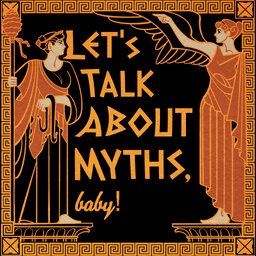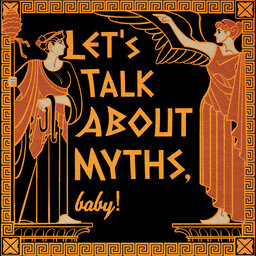RE-AIR: No Crime Have I Committed, Save to Speak the Truth, Cursed Cassandra
The final narrative episode of the Euripides series has been postponed... For now, welcome to Spooky Season. This episode originally aired in 2021.
CW/TW: far too many Greek myths involve assault. Given it's fiction, and typically involves gods and/or monsters, I'm not as deferential as I would be were I referencing the real thing.
Sources: Theoi.com: Aeschylus' Agamemnon, translated by Herbert Weir Smyth and found on Theoi; Early Greek Myths by Timothy Gantz. Episode title is an edited quote from Scream 2.
Attributions and licensing information for music used in the podcast can be found here: mythsbaby.com/sources-attributions.
 Let's Talk About Myths, Baby! Greek & Roman Mythology Retold
Let's Talk About Myths, Baby! Greek & Roman Mythology Retold


